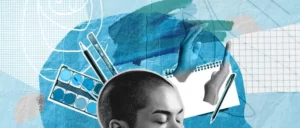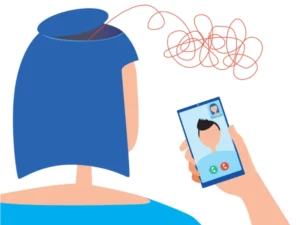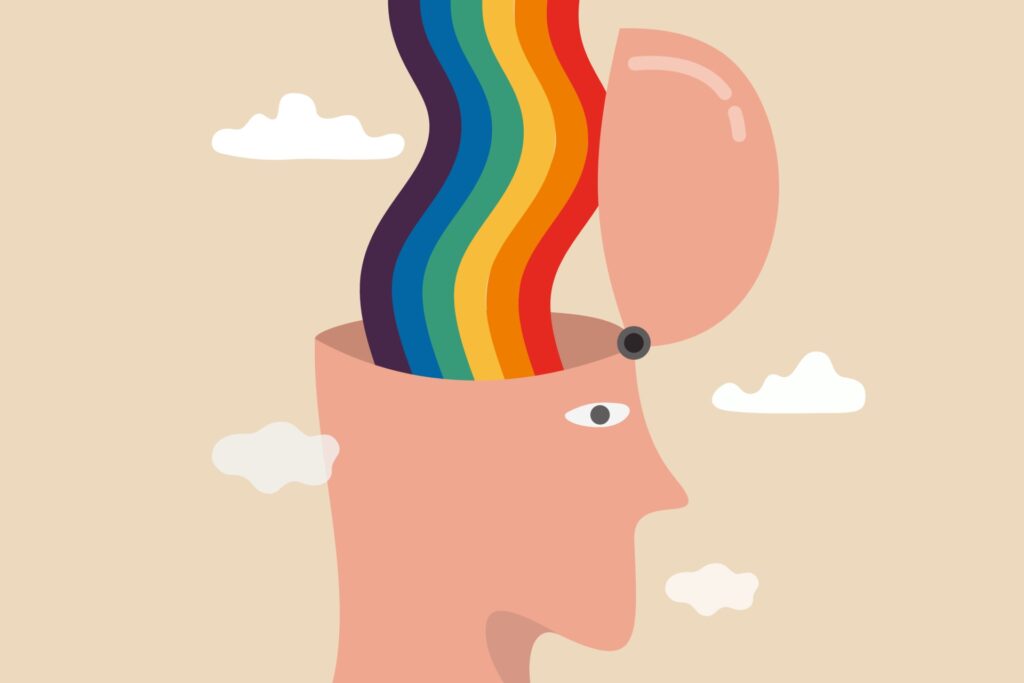Have you been struggling with a traumatic experience for a long time? Are you feeling like you can’t move on from it? If so, emotion-focused therapy may be the solution for you. This type of therapy is designed to help people heal from emotional trauma. It can be very effective in helping people to regain control of their lives and also to move on from their past. In this blog post, we will discuss the basics of emotion-focused therapy and how it can help you heal.
Contents
Defining Emotion-Focused Therapy

Emotion-focused therapy, also known as EFT, is a type of therapy that is designed to help people heal from emotional trauma. It is based on the premise that emotions are a powerful force in our lives and that they can have a major impact on our ability to function. EFT focuses on helping people to understand and manage their emotions. This type of therapy has been shown to be very effective in helping people to recover from trauma.
EFT is a short-term therapy. The goal of EFT is to help the client to understand their emotions and also to learn how to manage them.
How Does Emotion-Focused Therapy Work?
EFT works by helping people to understand their emotions and how they affect their lives. The therapist will help the client to identify the emotions that are causing problems in their life. Once these emotions are identified, the therapist will work with the client to help them understand why they are feeling these emotions. After the client understands their emotions, the therapist will help them to find ways to cope with these emotions. This may involve helping the client to develop healthy coping mechanisms or to also learn how to better deal with their emotions.
Stages
There are three stages of EFT:
- The first stage is called the exploration stage. In this stage, the therapist will help the client to identify the emotions that are causing problems in their life. The therapist will also help the client to understand why they are feeling these emotions.
- The second stage is called the transformation stage. In this stage, the therapist will help the client to find ways to cope with their emotions. This may involve helping the client to develop healthy coping mechanisms or to learn how to better deal with their emotions.
- The third stage is called the consolidation stage. In this stage, the therapist will help the client to consolidate what they have learned in therapy and to make sure that they are able to apply it to their life.
All of these stages are systematic and are designed to help the client to heal from their emotional trauma. EFT is a short-term therapy that typically lasts for 12-20 sessions. It is usually conducted in individual sessions, but it can also be done in group settings.
Techniques Used

There are many different techniques that can be used in EFT. All of these techniques are designed to help the client to understand and manage their emotions. Some of the techniques that may be used include:
Journaling
This involves the client writing down their thoughts and emotions in a journal. This can be very helpful in helping the client to understand their emotions and to find ways to cope with them. This activity can also be done with the help of a therapist.
To do this, the client will need to set aside time each day to write in their journal. They will need to write about their thoughts and emotions for that day. This activity can be done for a few minutes each day or for an hour each day, depending on the needs of the client.
De-Escalation
This technique involves helping the client to calm down their emotions. The therapist will help the client to identify their emotions and to find ways to calm down. This process can be very helpful in helping client to manage their emotions.
To do this, the therapist will work with the client to identify their emotions. Once these emotions are identified, the therapist will help the client to find ways to calm down. This may involve breathing exercises or relaxation techniques. The therapist may also teach the client how to use positive self-talk to calm down their emotions.
Reflection
This technique involves helping the client to reflect on their past and to identify any unresolved issues. Once these issues are identified, the therapist will help the client to work through them. This process can be very helpful in resolving emotional trauma.
To do this, the therapist will work with the client to identify any unresolved issues from their past. Once these issues are identified, the therapist will help the client to work through them. This may involve discussing the issue or working on a project related to the issue. Additionally, the therapist may help the client to develop a plan to deal with the issue in the future.
Relational Techniques
This technique involves helping the client to develop healthy relationships. The therapist will help the client to identify any unhealthy patterns in their relationships. Once these patterns are identified, the therapist will help the client to find ways to change them. This process can also be very helpful in developing healthier relationships.
To do this, the therapist will work with the client to identify any unhealthy patterns in their relationships. Once these patterns are identified, the therapist will help the client to find ways to change them. This may involve discussing the issue or further working on a project related to the issue. Additionally, the therapist may help the client to develop a plan to deal with the issue in future relationships.
Cognitive restructuring
This technique involves helping the client to change the way they think about their emotions. The therapist will help the client to identify negative thoughts as well as beliefs about their emotions. Once these thoughts are identified, the therapist will help the client to challenge and change these thoughts. This process can be very helpful in helping the client to understand and manage their emotions.
For example, a client may believe that their emotions are bad and that they should be ashamed of them. The therapist can help the client to challenge this belief and to see their emotions in a more positive light. This can be very helpful in helping the client to manage their emotions.
Exposure therapy
This type of therapy involves exposing the client to their emotions. The therapist will help the client slowly confront their emotions. This process can be very difficult, but it can also be very effective. Exposure therapy has been shown to be very successful in helping people to heal from emotional trauma.
To do this, the therapist will work with the client to gradually expose them to their emotions. The therapist will start with small exposures and then gradually increase the intensity of the exposure. This process can be very difficult, but it can also be very effective.
These are just a few examples of the techniques that are used in emotion-focused therapy. They are especially helpful in resolving emotional trauma. If you are struggling with your emotions, this approach to therapy can be beneficial.
Benefits
EFT has been shown to be an effective treatment for emotional trauma. It can help people to heal from their past as well as to regain control of their lives. It also helps with a variety of disorders such as:
- Anxiety disorders
- Depression
- Eating disorders
- Obsessive-compulsive disorder (OCD)
- Post-traumatic stress disorder (PTSD)
In addition, it also helps with emotional problems such as:

- Anger
- Loneliness
- Grief
- Guilt
- Jealousy
- Low self-esteem
These issues can have a profound effect on our lives. They can cause us to feel isolated, anxious, as well as depressed. EFT can help us to understand and manage these emotions.
Drawbacks
There are some drawbacks to EFT.
- One is that it can be expensive. It can also be can be time-consuming. It may take several sessions to see results.
- Additionally, EFT requires a commitment from both the therapist and the client. The therapist must be willing to work with the client on a regular basis. The client must also be willing to put in the effort to change their thinking and behaviors.
- It also requires a certain amount of vulnerability. The client must also be willing to share their emotions with the therapist. This can be difficult for some people.
Despite these drawbacks, EFT can be a very effective treatment for emotional trauma. If you are struggling with your emotions, this approach to therapy may be beneficial.
Finding An EFT Therapist
If you are interested in finding an EFT therapist, there are a few things you can do.
First, you can ask your doctor or mental health provider for a referral. They may know of someone who specializes in this type of therapy. You can also look online for a list of therapists in your area. Other references also include places and resources such as mental health directories, your health insurance provider, and community mental health centers.
When you are looking for a therapist, it is important to find someone who is experienced and certified in EFT. You can ask the therapist about their training and experience. Some questions you may want to ask your potential therapist include:

- What is your approach to therapy?
- How long have you been practicing EFT?
- What is your experience with treating emotional trauma?
- Which type of certification do you have in EFT?
- What is your success rate with this approach?
It is also important to find a therapist who you feel comfortable with. You should feel safe and respected by the therapist. You should also feel like they understand your needs. Choosing a therapist is an important decision. It is important to take your time and find someone who is a good fit for you.
Conclusion
In conclusion, EFT is a type of therapy that can be very effective in treating emotional trauma. It can help people to heal from their past and to regain control of their lives. It also helps with a variety of disorders. If you are struggling with your emotions, this approach to therapy may be beneficial.
If you are looking for a place to start reliable and affordable therapy, you can always consider Mantra Care. We have a team of certified and experienced therapists who would be more than happy to help you on your journey to emotional wellness. We offer a variety of therapeutic services from all across the world. You can visit our website to book a therapy session or download our free Android or iOS app for more information!


